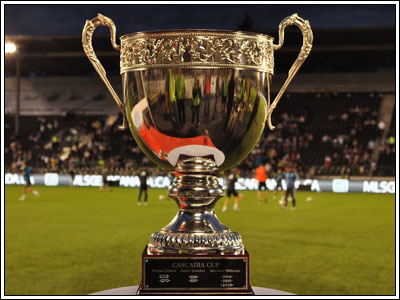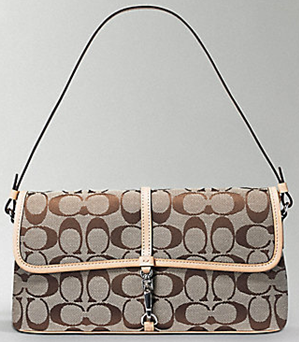Entries in Seattle Updates (481)
The Sonics Haven't Quite Returned to Seattle. Neither Have Their Trademarks.
 Coupla quotes yesterday about who owns the Sonics’ trademarks
Coupla quotes yesterday about who owns the Sonics’ trademarks
The Sonics haven’t returned quite yet.
And neither have their trademarks.
When owner Clay Bennett moved our beloved team to Oklahoma City, he took the basket of SEATTLE SUPERSONICS trademarks with him. In an agreement that settled the City of Seattle’s lawsuit intended to prevent the move, Mr. Bennett’s Professional Basketball Club, LLC, promised to return the marks to Seattle if a new owner brought an NBA-authorized team here that played in a renovated Key Arena. (Post discussing the agreement here.) Once those conditions are met, all the new owner has to do is request a transfer.
Things are looking good, but those things haven’t happened yet. That means fans who buy Sonics gear in the the euphoria of getting our team back presumably — and unwittingly — will profit the guy who caused our heartache. D’oh!
KING-5 TV interviewed me yesterday in a story about this odd twist.
My advice? Not that you asked, but wait to buy your Sonics gear until the purchase is complete and Oklahoma City transfers the trademarks back to the city where they belong.
Fans Strike Back, Apply to Register "Cascadia Cup" Themselves
 The Cup, from www.CascadiaCup.com
The Cup, from www.CascadiaCup.com
This is awesome.
Pacific Northwest soccer fans have been up in arms about Major League Soccer’s recent application to register CASCADIA CUP as a trademark with the Canadian Intellectual Property Office — Canada’s counterpart of the U.S. Patent and Trademark Office.
The Cascadia Cup is awarded to the fans of the team with the most points in a season between the Seattle Sounders, Portland Timbers, and Vancouver Whitecaps — by the fans of those teams. It’s been around since 2004.
So why did the league lay claim to the brand in December when it applied to register the mark in Canada? It’s not theirs to register.
True, the league could be trying to make sure a rogue didn’t claim it, but from the looks of it, the league’s the rogue. As in the States, the first to use a mark in Canada generally has superior rights. Since it’s a trophy by fans, for fans, it’s unclear what business the league has to protect it.
What’s cool is the fans have filed their own application to register the mark in the States. Just last week, the “Cascadia Cup Council,” an Oregon corporation, filed for CASCADIA CUP in Class 41 for “Entertainment services, namely, a contest designed to reward and honor professional soccer teams.” The Council claims a first use date in 2004 — the first year the cup was awarded.
From the Council’s press release:
“The supporters groups in Seattle, Portland and Vancouver jointly oppose Major League Soccer’s claim of ownership of the Cascadia Cup trademark. The three supporters groups have jointly used the Cascadia Cup mark for many years and have been the rightful owners of the mark. In response to recent statements and actions by MLS, the supporters groups recently formed a new entity, the Cascadia Cup Council, which acquired the supporters’ groups trademark rights in the Cascadia Cup mark. The Cascadia Cup Council will ensure that the mark remains in the hands of the very supporters who created it.”
It looks like the Council intends to oppose the league’s application in Canada as well.
Like I said, this is awesome. All I can say is, “Go Sounders!”
HT: Rachel Buker of the China Law Blog.
Fat Cat Trademark Lawsuit Won't be Decided in Washington
Fat Cat Mustard, LLC, sued Fat Cat Gourmet Foods, LLC, for trademark infringement in the Western District at Tacoma.
The case isn’t staying here.
On November 2, Judge Benjamin Settle dismissed the suit because the defendant did not have the required “minimum contacts” with this district to make personal jurisdiction constitutionally fair.
In support of its motion to dismiss, Gourmet’s managing member filed a declaration stating its records only revealed one shipment to Washington, which she said was made because a Florida customer did not want to travel with the bottle on her way to Washington.
The court found that was not enough to support personal jurisdiction.
“In this case, Mustard asserts that the Court has specific jurisdiction based on Gourmet’s and Gourmet’s distributors’ websites, the shipment of one jar of sauce to Washington, and Gourmet’s cease and desist letters. With regard to the websites, it appears to be uncontested that individuals in Washington could access a website and order Gourmet’s products. Mustard, however, has failed to even allege that any individual in Washington has completed such a transaction. Therefore, Mustard is required to show ‘something more.’ See Pebble Beach Co. v. Caddy, 453 F.3d 1151, 1155–1159 (9th Cir.2006). Mustard offers the letters and the shipment as the ‘something more.’
“First, the cease and desist letters are not ‘something more.’ Mustard has failed to show that the letters caused any harm whatsoever. Moreover, Mustard fails to cite any authority for its proposition that a federally granted property right, such as a trademark, subjects the owner to personal jurisdiction in every forum in which the right may be enforced.
“Second, Mustard misconstrues Gourmet’s transaction. [Gourmet’s managing member] declares that the purchaser was a ‘Florida customer’ who requested that the bottle be shipped to Washington ‘so she didn’t have to travel with it.’ This does not show that Gourmet ‘engaged in commercial activity in Washington’ as Mustard contends. Therefore, based on the record before the Court, Mustard has failed to show that Gourmet ‘purposely availed itself of the privilege of conducting activities in’ Washington.”
The court found the other elements needed to establish personal jurisdiction were similarly lacking.
“In this case, Gourmet has made a compelling case that the exercise of jurisdiction would be unreasonable. Gourmet’s interjection into Washington is de minimus, if any purposeful interjection exists at all. Being a Florida based corporation, Gourmet would suffer a significant burden defending itself in Washington. The parties concede that there is no conflict between Washington and Florida. Washington has no interest in adjudicating the propriety of a non-resident company’s trademark when there is no evidence that a sale was actually consummated in Washington or that there is a likelihood of confusion by Washington consumer. Neither forum appears to be the most efficient for judicial resolution because it does not appear that the parties compete in either Florida or Washington. While Washington may be a more convenient forum for Mustard, it has failed to show that Gourmet purposely interjects itself into Washington and causes harm. Finally, alternative forums exist if either party chooses to bring the action where the defending party is subject to personal jurisdiction. Therefore, the Court finds that Gourmet has shown that it would be unreasonable for the Court to assert personal jurisdiction in this matter.”
The case cite is Fat Cat Mustard, LLC v. Fat Cat Gourmet Foods, LLC, No. 12-5663, 2012 WL 5389149 (W.D. Wash. Nov. 2, 2012) (Settle, J.).
Omission of "Made in China" Label Makes Manufacturer Liable
Here’s a local Lanham Act case with interesting facts. It’s about the sale of waterproof notebooks used by the U.S. military.
Defendant J.L. Darling, Corp. manufactures waterproof paper, which it used in notebooks it sold to the military through its distributor, plaintiff Ira Green, Inc. After Darling terminated the Green’s distributorship, Green found a new source of waterproof paper located in China and proceeded to compete with Darling by selling notebooks using the new paper. However, Green did not place any “made in China” labels on its notebooks until after a Customs and Border Patrol Agent ordered it to do so.
Among various patent, trademark, and false advertising claims the parties allege against each other, Darling claimed that Green’s omission of the “made in China” labels amounted to falsely marking the country of origin of its notebooks, thereby deceiving consumers. Green responded that the issue was moot because it corrected its omission and that Darling provided no evidence that customers were deceived or that Darling suffered any resulting injury.
The parties brought cross-motions for summary judgment on their claims and counterclaims, including on Darling’s two Lanham Act claims for false designation of origin.
On Oct. 9, Western District Judge Robert Bryan granted Darling’s motion and denied Green’s.
It found: “While there is an issue of fact over when and how many of Green’s notebook products eventually received the correct ‘made in China’ stickers, there is no issue of fact that Green did not place the proper country of origin on its notebook products when it first distributed those products. Because the lack of sticker placement was a literally false omission, causation and damages are presumed unless Green can rebut this presumption. Green has shown no facts to rebut. Because Darling and Green both request summary judgment on these two claims, summary judgment should be granted and judgment of liability only entered for Darling, and summary judgment should be denied for Green, on Darling’s second and third Lanham Act claims (Counts II and III).
The case cite is Ira Green, Inc. v. J.L. Darling, Corp., No. 11-05796, 2012 WL 4793005 (W.D. Wash. Oct. 9, 2012) (Bryan, J.).
Coach Sues Snohomish Antique Store for Counterfeiting
 Coach’s branded purse. Genuine article available at a Coach shops;
Coach’s branded purse. Genuine article available at a Coach shops;
counterfeit version at local antique store, Coach’s complaint alleges
On Thursday, Coach, Inc., filed suit against a Snohomish, Wash., nostalgia and antique store for counterfeiting.
The suit, filed in the Western District of Washington, alleges that Pegasus Theater Shops and its owner have been selling handbags, wallets, sunglasses, reading glasses, cellular phone cases, and watches bearing Coach’s trademark, or a trademark that is indistinguishable from Coach’s “CC” logo, without Coach’s authorization.
The suit also names the shop’s owner individually. It alleges she is the “active, moving, conscious force behind the alleged infringing activities.”
The suit asserts claims for trademark infringement, trade dress infringement, false designation of origin, and unfair business practices.
The defendants have not yet filed an answer.
Counterfeiting claims are relatively rare in these parts, though obviously not unheard of.
The case cite is Coach, Inc. v. Pegasus Theater Shops, No. 12-1631 (W.D. Wash.).
